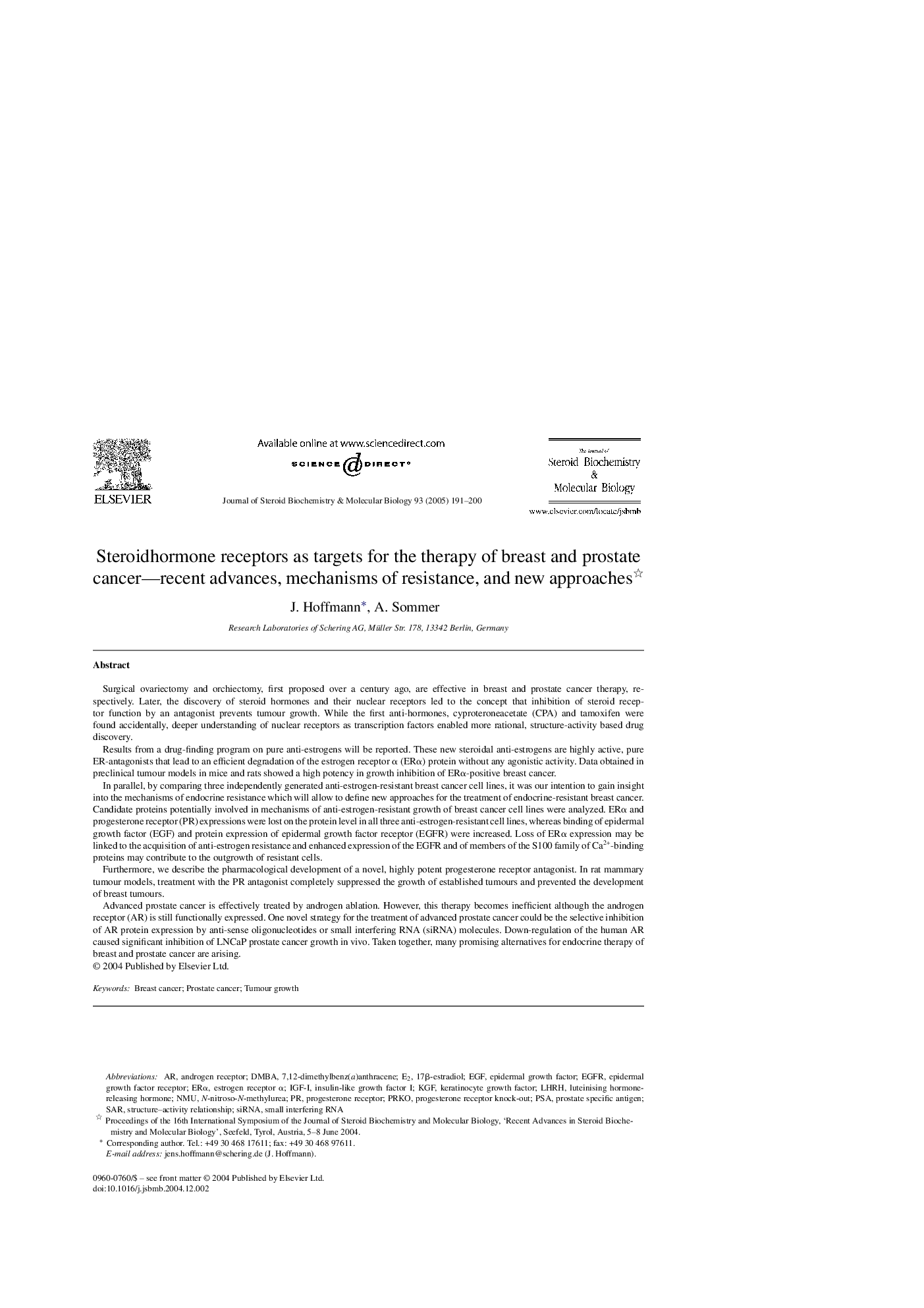| Article ID | Journal | Published Year | Pages | File Type |
|---|---|---|---|---|
| 9892219 | The Journal of Steroid Biochemistry and Molecular Biology | 2005 | 10 Pages |
Abstract
Advanced prostate cancer is effectively treated by androgen ablation. However, this therapy becomes inefficient although the androgen receptor (AR) is still functionally expressed. One novel strategy for the treatment of advanced prostate cancer could be the selective inhibition of AR protein expression by anti-sense oligonucleotides or small interfering RNA (siRNA) molecules. Down-regulation of the human AR caused significant inhibition of LNCaP prostate cancer growth in vivo. Taken together, many promising alternatives for endocrine therapy of breast and prostate cancer are arising.
Keywords
PSAKGFLHRHERαIGF-IDMBANMUSARLuteinising hormone-releasing hormoneEGFN-Nitroso-N-methylureaPRKOEGFR17β-estradiol7,12-dimethylbenz(a)anthraceneSmall interfering RNAsiRNAProstate specific antigeninsulin-like growth factor IStructure–activity relationshipTumour growthProstate cancerBreast cancerepidermal growth factorKeratinocyte growth factorAndrogen ReceptorEstrogen receptor αEpidermal growth factor receptorProgesterone receptor
Related Topics
Life Sciences
Biochemistry, Genetics and Molecular Biology
Biochemistry
Authors
J. Hoffmann, A. Sommer,
